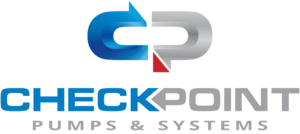Maximizing Efficiency: The Role of Chemical Injection Pumps in Reducing Operational Costs by 20% in the Oil Industry
In the competitive landscape of the oil industry, operational efficiency is paramount for reducing costs and maximizing profitability. Recent industry reports highlight that implementing advanced technologies can lead to cost savings of up to 20%, particularly in the management of chemical treatments.
 Among these technologies, chemical injection pumps play a critical role. According to a study by the International Energy Agency, optimizing chemical injection processes not only enhances the performance of oil recovery but also minimizes wastage—factors that are essential for maintaining sustainable operations.
Among these technologies, chemical injection pumps play a critical role. According to a study by the International Energy Agency, optimizing chemical injection processes not only enhances the performance of oil recovery but also minimizes wastage—factors that are essential for maintaining sustainable operations.
As the demand for more efficient practices intensifies, the adoption of chemical injection pumps is proving to be a key strategy for companies striving to improve their bottom line while adhering to environmental standards. This paper explores how chemical injection pumps contribute to operational cost reduction and overall efficiency in the oil sector.
The Importance of Chemical Injection Pumps in Operational Efficiency
Chemical injection pumps play a crucial role in enhancing operational efficiency within the oil industry.
With the market for chemical injection pumps projected to reach a revenue of USD 96.0 billion by 2033, growing at a CAGR of 8.4%, these systems are becoming indispensable for plant operators looking to reduce costs.
The efficiency afforded by these pumps directly impacts the overall performance of operations, enabling companies to achieve cost reductions of up to 20%.
This efficiency is realized through optimally managed chemical dosing that enhances processes such as corrosion inhibition and scale control.
Tip: When selecting chemical injection pumps, consider not only the pump's performance but also the accompanying systems for monitoring and managing chemical use to maximize benefits.
Additionally, advancements in metering pump technology emphasize the importance of precision in chemical dosages.
The metering pumps market is expected to reach around USD 9.1 billion by 2030, underscoring the industry’s shift toward more sophisticated pumping solutions.
Proper implementation of these systems can significantly enhance safety and operational support, ensuring that the pumping infrastructure meets stringent industry requirements.
Tip: Regular maintenance and evaluation of pump efficiency can help identify areas for improvement, further driving down operational costs.
In conclusion, as operators increasingly recognize the importance of effective pumping and piping systems, the potential for chemical injection pumps to refine and streamline processes continues to grow, paving the way for substantial economic benefits in the oil sector.
Understanding the Cost-Saving Mechanisms of Chemical Injection
Chemical injection pumps play a critical role in optimizing efficiency and reducing operational costs in the oil industry. By delivering precise amounts of chemicals—such as corrosion inhibitors and scale preventers—these pumps ensure the smooth operation of oil extraction and processing. This precision not only minimizes waste but also enhances the efficacy of the chemicals used, leading to significant cost savings. The targeted delivery system helps in mitigating issues that could otherwise escalate operational expenses, thus reinforcing the overall financial health of oil companies.
Understanding the cost-saving mechanisms behind chemical injection is essential for maximizing operational efficiency. By implementing these pumps, companies can significantly decrease downtime caused by equipment failures or maintenance needs. Furthermore, the continuous monitoring and automated adjustments provided by modern chemical injection pumps facilitate better resource management. As a result, the oil industry can expect to see operational costs decrease by as much as 20%, showcasing the value of investing in advanced chemical management solutions.
Maximizing Efficiency: The Role of Chemical Injection Pumps in Reducing Operational Costs by 20% in the Oil Industry - Understanding the Cost-Saving Mechanisms of Chemical Injection
| Parameter | Value | Description |
|---|---|---|
| Initial Operational Cost | $1,000,000 | Total cost of operations before pump implementation |
| Cost Reduction Factor | 20% | Percentage of cost savings through chemical injection |
| Projected Cost After Implementation | $800,000 | Costs expected after implementing chemical injection pumps |
| Monthly Savings | $16,667 | Estimated monthly savings from reduced operational costs |
| Return on Investment (ROI) | 150% | Estimated ROI over a 12-month period |
| Maintenance Cost Reduction | 30% | Reduction in maintenance costs due to improved efficiency |
Case Studies: Successful Implementation in the Oil Industry
In the oil industry, the implementation of chemical injection pumps has demonstrated remarkable success in enhancing operational efficiency and driving down costs. A recent report by the International Energy Agency (IEA) indicates that effective chemical management can reduce operational expenditures by approximately 20% in oil extraction processes. Case studies from leading companies reveal that by integrating advanced chemical injection systems, they not only optimized chemical usage but also minimized waste, leading to substantial cost savings.
One notable example comes from a mid-sized oil producer that adopted a state-of-the-art chemical injection pump system. This case study highlighted that after the implementation, the producer saw a reduction in chemical spend by around $1.5 million annually, directly related to more precise chemical dosing. Moreover, the system enhanced the efficiency of their production by improving well reliability, thus extending the lifespan of their equipment and decreasing the downtime associated with maintenance. According to the Society of Petroleum Engineers (SPE), similar implementations across various regions showed that integrating these technologies could lead to a decrease in total lifecycle costs by up to 15%, directly impacting the bottom line.
Technological Advancements in Chemical Injection Systems
Recent technological advancements in chemical injection systems have revolutionized the oil industry by enhancing the efficiency and precision of chemical dosing. Modern pumps are equipped with sophisticated control mechanisms that allow for real-time monitoring and adjustments, ensuring optimal chemical use based on specific operational requirements. This precision not only minimizes waste but also maximizes the effectiveness of the chemicals used, leading to significant cost reductions.
Moreover, the integration of smart technologies such as IoT and data analytics into chemical injection systems facilitates predictive maintenance and troubleshooting. This proactive approach helps in reducing downtime and operational disruptions, ultimately contributing to lower overhead costs. As a result, companies are witnessing a marked improvement in overall productivity, with estimates suggesting potential operational cost reductions of up to 20%. Such advancements not only bolster profitability but also enhance the sustainability of operations within the oil industry by reducing chemical overuse and minimizing environmental impact.
Future Trends: Innovations in Chemical Injection for Cost Reduction
In the ever-evolving oil industry, innovations in chemical injection systems are becoming pivotal for achieving significant cost reductions. One emerging trend is the integration of smart technology and automation in chemical injection pumps. These advanced systems can analyze real-time data from oil production environments to optimize the injection rates of necessary chemicals, ensuring that only the required amounts are used. This precision minimizes waste and avoids unnecessary expenditures, ultimately contributing to an operational cost reduction of up to 20%.
Moreover, the development of eco-friendly chemical formulations is set to transform the landscape of chemical injection. As regulations around environmental impact become stricter, the industry is shifting towards greener alternatives that not only comply with standards but also reduce overall operational costs. These innovations pave the way for safer and more efficient processes, allowing companies to enhance their sustainability while achieving significant financial savings. Embracing these future trends can position oil companies at the forefront of efficiency and environmental responsibility.
Maximizing Efficiency: The Role of Chemical Injection Pumps in Reducing Operational Costs
This chart illustrates the projected reduction in operational costs achieved through the implementation of advanced chemical injection pumps in the oil industry. The data highlights a consistent trend in cost reduction over the next five years, demonstrating the importance of innovation in chemical injection technology.
Related Posts
-
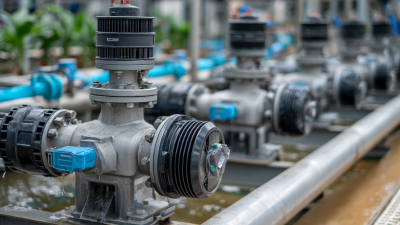
Understanding the Role of Chemical Pumps in Enhancing Water Treatment Efficiency
-

Unveiling the Best Chemical Pumps: A Comprehensive Comparison Guide
-
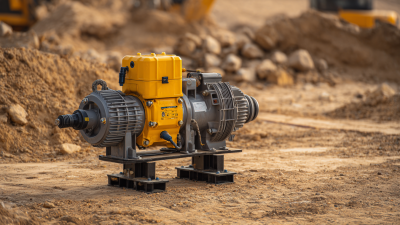
10 Essential Tips for Choosing the Right Electric Diaphragm Pump for Your Business
-
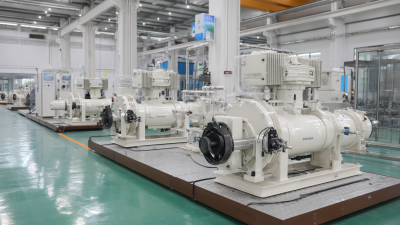
Revolutionizing Fluid Management: The Future of Electric Chemical Injection Pumps Explained
-
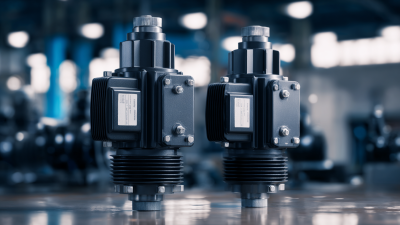
The Ultimate Guide to Choosing the Right Fluid Pumps for Your Industrial Needs
-
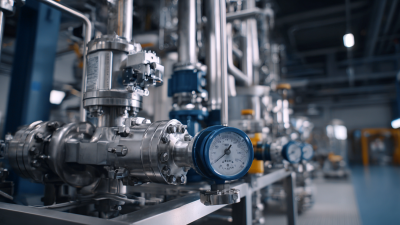
Understanding the Role of Chemical Pumps in Modern Industrial Applications
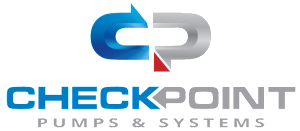
Whether your solution requires a single pumping application or an expansive engineered system,
CheckPoint is committed to becoming your partner in excellence.
